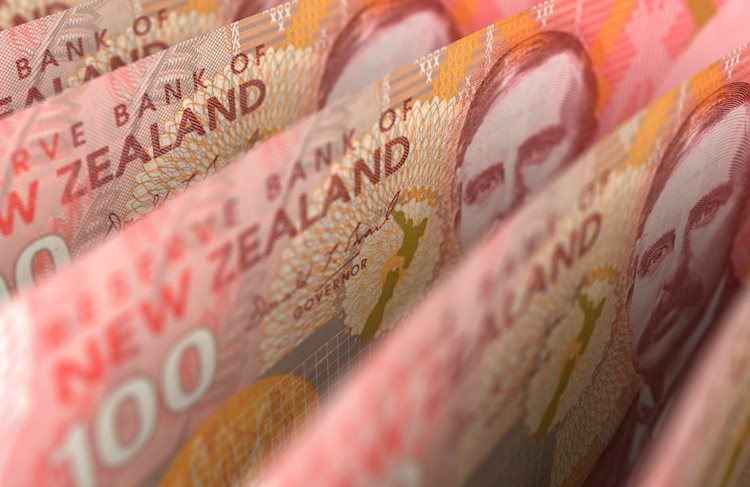- NZD/USD catches fresh bids on Thursday amid the emergence of fresh selling around the USD.
- Dovish Fed expectations trigger a fresh leg down in the US bond yields and undermine the buck.
- Relatively thin liquidity on the back of the US holiday might hold bulls from placing fresh bets.
The NZD/USD pair builds on the overnight bounce from levels just below the 0.6000 psychological mark and gains strong positive traction during the Asian session on Thursday. The momentum lifts spot prices back closer to mid-0.6000s in the last hour and is sponsored by the emergence of fresh US Dollar (USD) selling.
The USD Index (DXY), which tracks the Greenback against a basket of currencies, faced rejection near the 100-day Simple Moving Average (SMA) and for now, seems to have stalled a two-day-old recovery trend from its lowest level since August 31. The better-than-expected US labor market data released and a rise in consumer inflation expectations did provide a goodish lift to the Greenback on Wednesday, though dovish Federal Reserve (Fed) expectations keep a lid on any further gains.
In fact, the markets have fully priced out the possibility of any further interest rate hikes by the Fed and see a better than 50% chance of a rate cut by May 2024. This triggers a fresh leg down in the US Treasury bond yields, which, along with a stable performance around the equity markets, undermines the safe-haven buck and benefits the risk-sensitive Kiwi. That said, thin liquidity on the back of the US Thanksgiving holiday might hold bulls from placing fresh bets around the NZD/USD pair.
Even from a technical perspective, this week’s failure ahead of the 200-day Simple Moving Average (SMA) further warrants caution before positioning for an extension of the appreciating move. In the absence of any relevant market-moving economic data, the USD price dynamics will continue to play a key role in influencing the NZD/USD pair. The focus will then shift to Friday’s release of the quarterly New Zealand retail sales figures, followed by the flash US PMI prints later during the US session.
Technical levels to watch
Read the full article here

